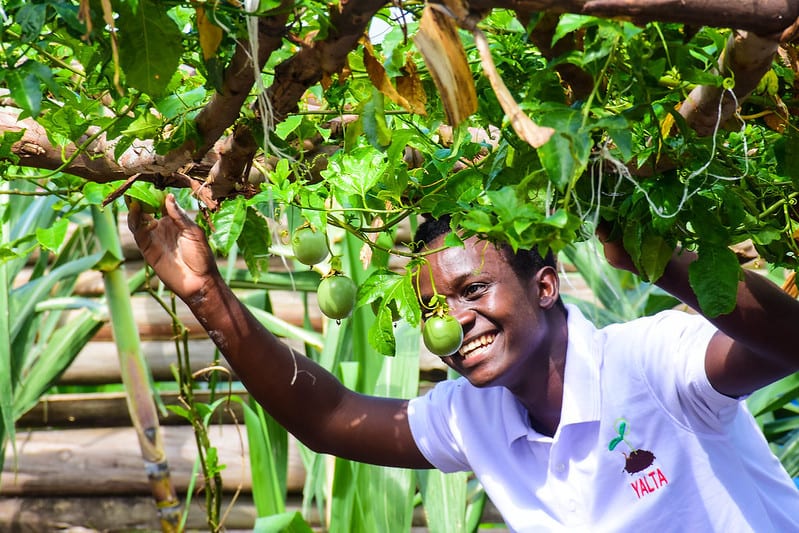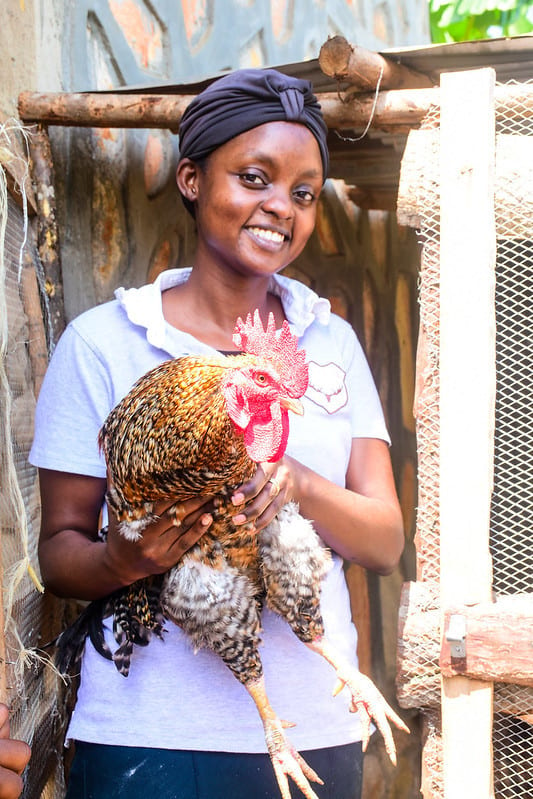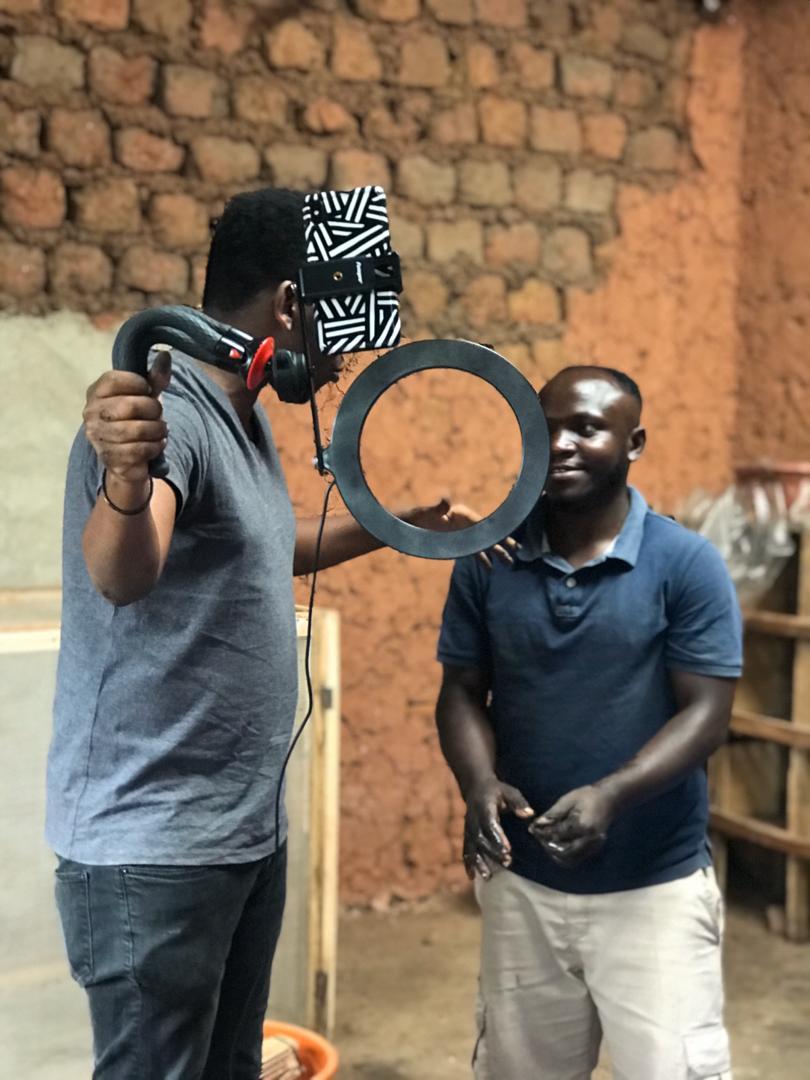report highlights
Strengthening programming and policymaking for inclusive youth agripreneurship in Africa
report highlights
Strengthening programming and policymaking for inclusive youth agripreneurship in Africa
How can we stimulate youth involvement in agripreneurship? How can development actors create an enabling environment for (aspiring) young agripreneurs? And, how can we engage this diverse group so they contribute to conceptualise and design agripreneurship programmes and policies? That’s what the collaboration between the Netherlands Food Partnership, INCLUDE, and The Broker set out to understand through the project Inclusive Youth Agripreneurship in Africa.

Researchers looked at relevant literature, mapped youth agripreneurship programs and interviewed experts. They tried to understand what the most effective goals, approaches, activities and strategies are to stimulate youth agripreneurship. They developed an insights report using case studies, including the YALTA initiative, in a participatory process that involved the project’s youth-led reference group.
The report was validated in group meetings with representatives from African-based youth agripreneurship networks and Dutch policy makers. It provides clear recommendations to the policymakers funding those programs, and practical guidance for programme designers.
The researchers suggest several concrete pathways for strengthening youth agripreneurship programmes:
- Adopt integrated programmatic approaches - to address skill deficits and safeguard youth from entering the labour market under disadvantageous or exploitative conditions.
- Operationalise youth diversity in programmatic targeting - to account for the challenges that specific groups of youth face when trying to become agripreneurs.
- Tailor programmatic activities - taking into account the specific needs of three distinct groups of youth: market-ready youth, hard to serve youth, and youth requiring special support.
- Employ fit-for-purpose youth engagement strategies - to ensure that youth agripreneurship programmes are relevant to the needs, realities and experiences of youth.
As part of the research, participants and researchers also worked towards making these pathways concrete and providing actionable recommendations for successful implementation.
Report Highlights
Strengthening programming and policymaking for inclusive youth agripreneurship in Africa
How can we stimulate youth involvement in agripreneurship? How can development actors create an enabling environment for (aspiring) young agripreneurs? And, how can we engage this diverse group so they contribute to conceptualise and design agripreneurship programmes and policies? That’s what the collaboration between the Netherlands Food Partnership, INCLUDE, and The Broker set out to understand through the project Inclusive Youth Agripreneurship in Africa.
Researchers looked at relevant literature, mapped youth agripreneurship programs and interviewed experts. They tried to understand what the most effective goals, approaches, activities and strategies are to stimulate youth agripreneurship. They developed an insights report using case studies, including the YALTA initiative, in a participatory process that involved the project’s youth-led reference group.
The report was validated in group meetings with representatives from African-based youth agripreneurship networks and Dutch policy makers. It provides clear recommendations to the policymakers funding those programs, and practical guidance for programme designers.
The researchers suggest several concrete pathways for strengthening youth agripreneurship programmes:
- Adopt integrated programmatic approaches - to address skill deficits and safeguard youth from entering the labour market under disadvantageous or exploitative conditions.
- Operationalise youth diversity in programmatic targeting - to account for the challenges that specific groups of youth face when trying to become agripreneurs.
- Tailor programmatic activities - taking into account the specific needs of three distinct groups of youth: market-ready youth, hard to serve youth, and youth requiring special support.
- Employ fit-for-purpose youth engagement strategies - to ensure that youth agripreneurship programmes are relevant to the needs, realities and experiences of youth.
As part of the research, participants and researchers also worked towards making these pathways concrete and providing actionable recommendations for successful implementation.

How can we stimulate youth involvement in agripreneurship? How can development actors create an enabling environment for (aspiring) young agripreneurs? And, how can we engage this diverse group so they contribute to conceptualise and design agripreneurship programmes and policies? That’s what the collaboration between the Netherlands Food Partnership, INCLUDE, and The Broker set out to understand through the project Inclusive Youth Agripreneurship in Africa.
Researchers looked at relevant literature, mapped youth agripreneurship programs and interviewed experts. They tried to understand what the most effective goals, approaches, activities and strategies are to stimulate youth agripreneurship. They developed an insights report using case studies, including the YALTA initiative, in a participatory process that involved the project’s youth-led reference group.
The report was validated in group meetings with representatives from African-based youth agripreneurship networks and Dutch policy makers. It provides clear recommendations to the policymakers funding those programs, and practical guidance for programme designers.
The researchers suggest several concrete pathways for strengthening youth agripreneurship programmes:
- Adopt integrated programmatic approaches - to address skill deficits and safeguard youth from entering the labour market under disadvantageous or exploitative conditions.
- Operationalise youth diversity in programmatic targeting - to account for the challenges that specific groups of youth face when trying to become agripreneurs.
- Tailor programmatic activities - taking into account the specific needs of three distinct groups of youth: market-ready youth, hard to serve youth, and youth requiring special support.
- Employ fit-for-purpose youth engagement strategies - to ensure that youth agripreneurship programmes are relevant to the needs, realities and experiences of youth.
As part of the research, participants and researchers also worked towards making these pathways concrete and providing actionable recommendations for successful implementation.





